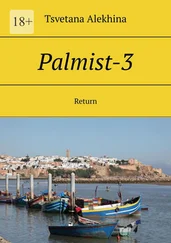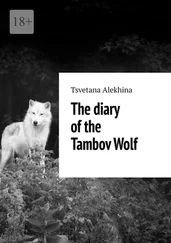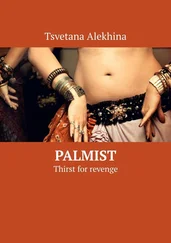Tsvetana Alеkhina - Choosing religion you choose fate
Здесь есть возможность читать онлайн «Tsvetana Alеkhina - Choosing religion you choose fate» — ознакомительный отрывок электронной книги совершенно бесплатно, а после прочтения отрывка купить полную версию. В некоторых случаях можно слушать аудио, скачать через торрент в формате fb2 и присутствует краткое содержание. ISBN: , Жанр: Религиозная литература, на английском языке. Описание произведения, (предисловие) а так же отзывы посетителей доступны на портале библиотеки ЛибКат.
- Название:Choosing religion you choose fate
- Автор:
- Жанр:
- Год:неизвестен
- ISBN:9785005596529
- Рейтинг книги:4 / 5. Голосов: 1
-
Избранное:Добавить в избранное
- Отзывы:
-
Ваша оценка:
- 80
- 1
- 2
- 3
- 4
- 5
Choosing religion you choose fate: краткое содержание, описание и аннотация
Предлагаем к чтению аннотацию, описание, краткое содержание или предисловие (зависит от того, что написал сам автор книги «Choosing religion you choose fate»). Если вы не нашли необходимую информацию о книге — напишите в комментариях, мы постараемся отыскать её.
Choosing religion you choose fate — читать онлайн ознакомительный отрывок
Ниже представлен текст книги, разбитый по страницам. Система сохранения места последней прочитанной страницы, позволяет с удобством читать онлайн бесплатно книгу «Choosing religion you choose fate», без необходимости каждый раз заново искать на чём Вы остановились. Поставьте закладку, и сможете в любой момент перейти на страницу, на которой закончили чтение.
Интервал:
Закладка:
Mirolyubov learns about the tablets when Izenbeck settled in Brussels in 1925, and studies them. The tablets disappear without a trace after Isenbeck’s death in August 1941. The tablets were stolen from Izenbeck’s apartment in Brussels. A.I. Asov states the version that M. Yu stole the tablets. Sheftel for the purpose of their research. M. Yu. Sheftel was an employee of Prof. Ekka. During the German occupation in Ahnenerbe, a department was headed at the University of Brussels. According to relatives, the only thing known about the fate of Sheftel is that during the war he was captured in a French camp while escaping from German persecution. After the war, the tablets were sold to the Mormons. Unfortunately, there is no documentary evidence that anyone other than Mirolyubov saw the «Izenbek tablets».
Russian Russian Writings, a report on pre-Cyrillic writing, was read in the city of San Francisco at the Russian Center. This event took place on August 10, 1952, with a report made by Al. Kur, in which it was claimed that the Russians had their own writing even before the arrival of Cyril and Methodius. In the same year, Kur addressed readers with a request to clarify the fate of the ancient tablets from the Isenbeck library. Kur addressed readers with the help of the pages of the magazine «Firebird», the printing organ of the Russian Center in San Francisco. Yu. P. Mirolyubov responded to this request in September 1953. The correspondence of Kur and Yu. P. Mirolyubov is partially published by A. Asov.
The first publication about the «Veles Book» not the full version appeared in the USSR in 1960. The full version appeared in Russia in 1990 by O. V. Tvorogov and is guided by the typewritten text of Mirolyubov. Yu. P. Mirolyubov is an author on Slavic folklore, artistic works and amateur compositions.
CHAPTER 4
The Baptism of Russia
The period of Russia’s history before the adoption of Christianity did not fit into any «standard» pattern – it was not similar to the primitive communal system, nor to the slave owning, nor to the feudal. Rather it looked like a socialist. In the period before the baptism of Rus, the Russ undoubtedly had their own state and at the same time, there was no class society, in particular feudal. And the disadvantage was that the «classical» Soviet ideology claimed that the feudal class created the state as an instrument of its political domination and suppression of the peasants.
The Old Russian Slavs, they did not accumulate wealth, they did not leave an inheritance, they did not have the meaning of life to make capital, and this was contemptuously censured. And what was valuable? Russians have never sworn by their family, children. And what did they swear by? For example, in the treaty with the Greeks of 907, it is clear that the Russ swore by «their weapons, and Perun, their God, and Hair, cattle god.» Prince Svyatoslav swore by Perun and Volos in the treaty of 971 with Byzantium. The Slavs considered their connection with God, with the Pantheon of Gods, their honor, conscience and freedom to be the most valuable. The Rus despised gold, and one of the treaties with Byzantium and Prince Svyatoslav proves this. If the oath is broken, «let us be golden, like this gold.»
The baptism of Rus was of great importance in Russian history. Pagan beliefs were replaced by a nationwide unified religion. The adoption of Christianity from Byzantium predetermined the future path of Russia’s development as the largest stronghold of Orthodoxy.
The princely power grew, and with it, the need to strengthen the state grew. Disagreement in polytheism did not give unity and weakened the state of Ancient Russia. Despite the assertion of the common Slavic pantheon of gods, the union of tribes was steadily disintegrating. Vladimir Svyatoslavovich understood that a stronger religion was needed, capable of uniting people.
Before the adoption of baptism, paganism flourished in Russia, it was a completely religious system. Christianity cannot be called a completely new form of spiritual life. Prince Vladimir understood that it would be extremely difficult to introduce a completely new and unusual religion into Russia. After all, even before the advent of Christianity in Russia, there was a cult of the god of the Genus, who was a heavenly god, ruled the clouds, breathed life into all living things. In fact, the baptism of Russia gave a sharp impetus to the people from the transition of one religion to another, from polytheism of polytheism, to monotheism, that is, monotheism.
Historian S. F. Platonov believes that the main reasons for the baptism of Russia were economic. It was difficult for the state to subjugate many Slavic communities, Russia was baptized in order to strengthen the role of the state and subjugate a completely cohesive people. One of the reasons is trade, Christian peoples did not want to communicate and trade with pagans, Russia risked remaining isolated. With acceptance Russia became on a par with other European states, Europeans began to conduct a dialogue with them and no longer looked at them as Russian barbarians. Because Christianity in Russia was Orthodox and came from Byzantium, Russia, felt isolated, because Catholicism prevailed in Western Europe at that time. The prince did not know that after the baptism, Kievan Rus would remain the only Orthodox state, and Greek Byzantium would soon fall.
With the adoption of Christianity, the prince stopped supporting pagan cultures, and they began to be destroyed everywhere. Religious buildings, idols and temples, which were especially revered by pagans, were destroyed. Pagan holidays and rituals were strongly condemned by the clergy.
The Prince himself, being a pagan, was inclined to the Byzantine faith. In 980, Grand Duke Vladimir I Svyatoslavich tried to unite paganism and make polytheism in Russia. Throughout Russia, from the eastern slopes of the Carpathians to the Oka and Volga, from the Baltic Sea to the Black Sea, which included East Slavic, Finno-Ugric and Turkic tribes. The chronicle testifies that Prince Vladimir was devoted to pagan gods. He had serious intentions by creating the Slavic pantheon of gods is in Kiev, he sends his uncle Dobrynya to Novgorod, and he «put an idol over the Volkhov River, and I’ll give him the people of the city like God.» The chronicle reports: «And the beginning of the principality of Volodimer in Kiev is one, and put the idols on the hill outside the courtyard of the terem»: Perun (Finno-Ugric Perkun), Horsa (god of the Turkic tribes), Dazhbog, Stribog (Slavic gods), Simargla, Mokosh (goddess of the Mokosh tribe). The idol that Dobrynya set up in Novgorod was the idol of the Finnish Perkun, the inhabitants of Novgorod gave more reverence to the Slavic god Veles.
Christianity in Russia was spread long before the official baptism of Russia under Vladimir I Svyatoslavich in 988. This is evidenced by numerous data. Let us start with Byzantium. Russia besieged Constantinople three times – in 866, 907 and 941. Pre-planned robber raids were repeatedly carried out on Russia, and a peace treaty was subsequently concluded. Russia and Byzantium had well-established trade and state relations. Initially, only pagans participated in the signing of the treaty in 912 from the Russian side, Christians already occupy the first place in the signing of the treaty in 945. The number of Christians has increased markedly in a short period. The first baptism took place in Constantinople in 955; Princess Olga received it. It was a magnificent and solemn event, both Russian and Byzantine sources tell about it. People from the closest princely entourage became Christians.
Every religion, including the chaotic paganism of Russia, has, in addition to all kinds of cults and idols moral foundations. These moral foundations, whatever they may be, organize people’s life. Old Russian paganism permeated all layers of the society of Ancient Russia that had begun to feudalize. From the records of the chronicles, it is clear that Russia already possessed the ideal of military behavior. This ideal is clearly seen in the stories of the Initial Chronicle about Prince Svyatoslav.
Читать дальшеИнтервал:
Закладка:
Похожие книги на «Choosing religion you choose fate»
Представляем Вашему вниманию похожие книги на «Choosing religion you choose fate» списком для выбора. Мы отобрали схожую по названию и смыслу литературу в надежде предоставить читателям больше вариантов отыскать новые, интересные, ещё непрочитанные произведения.
Обсуждение, отзывы о книге «Choosing religion you choose fate» и просто собственные мнения читателей. Оставьте ваши комментарии, напишите, что Вы думаете о произведении, его смысле или главных героях. Укажите что конкретно понравилось, а что нет, и почему Вы так считаете.












